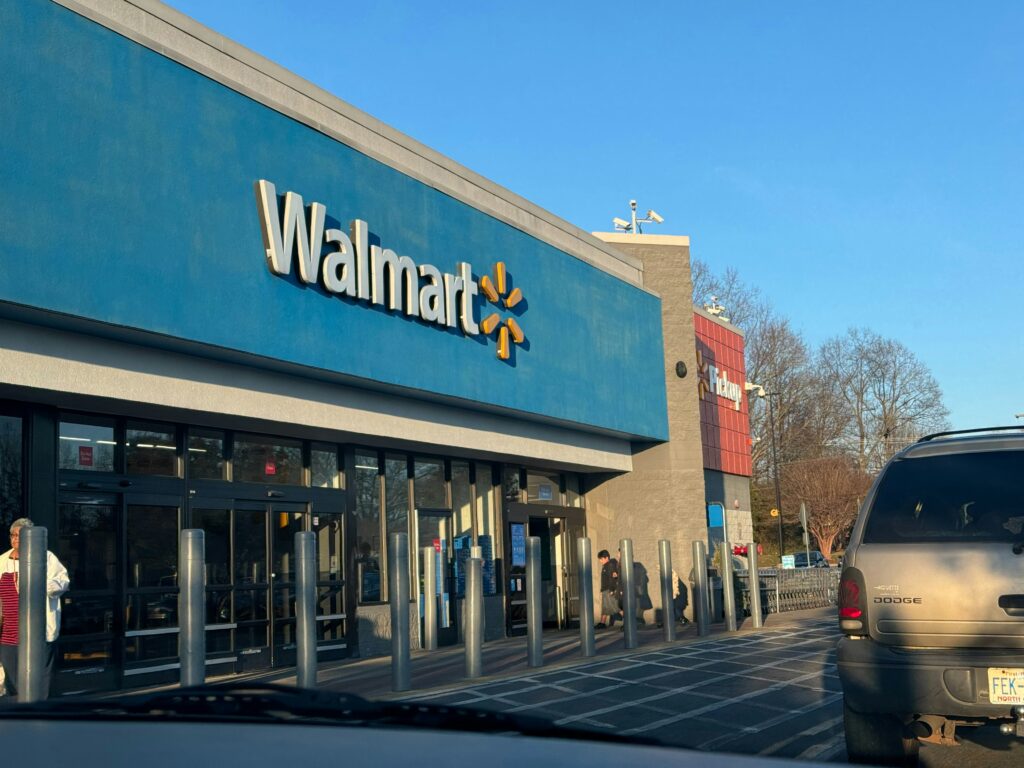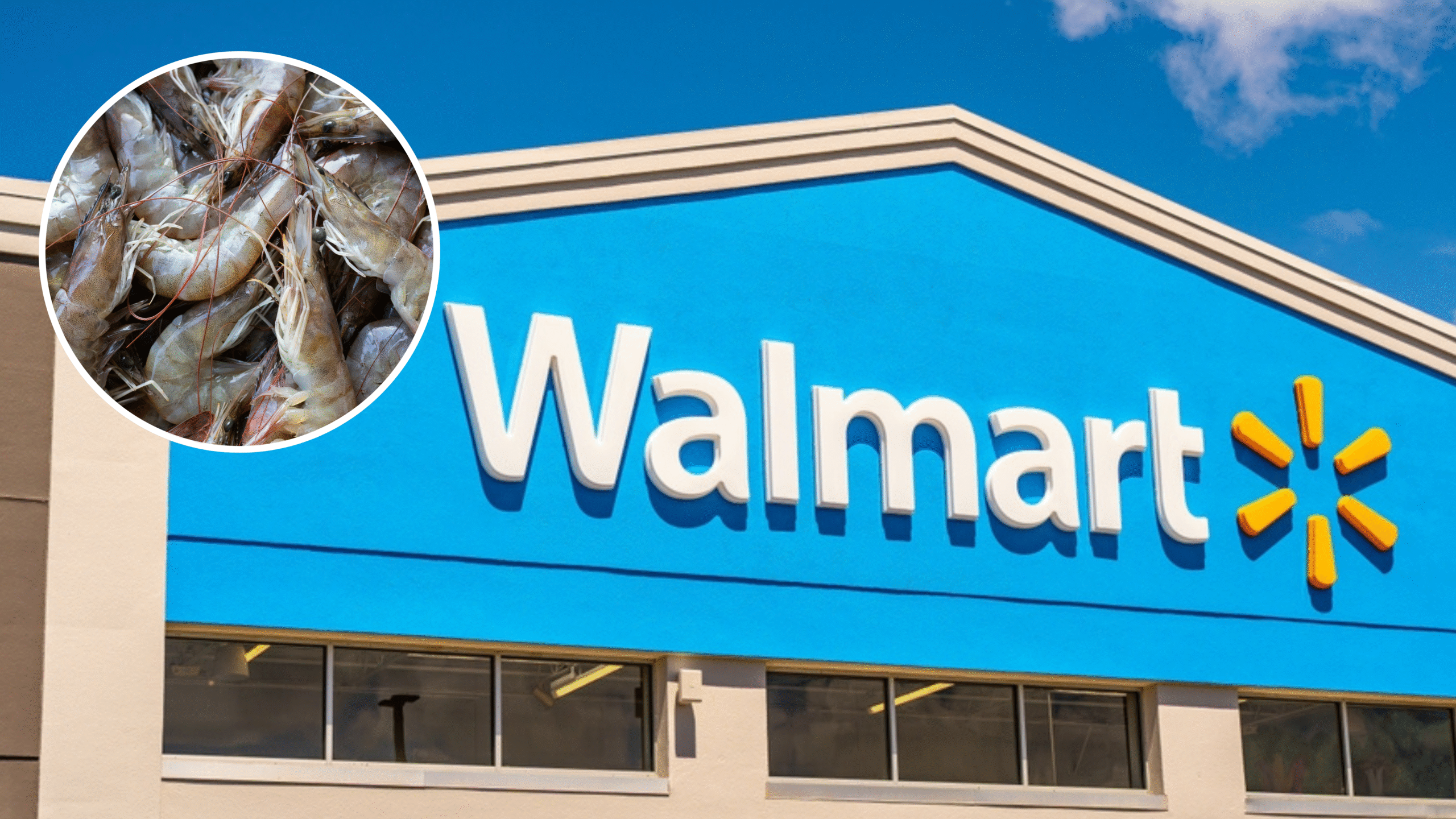Shrimp sold at Walmart has been recalled after federal officials raised concerns about potential radioactive exposure. The Food and Drug Administration confirmed that certain frozen shrimp under Walmart’s Great Value label tested positive for trace levels of cesium 137, a radioactive isotope. The product involved is Great Value Frozen Raw EZ Peel Tail On Farm Raised White Vannamei Shrimp sold in two pound bags. The affected lot codes are 8005540 1, 8005538 1, and 8005539 1, each with a best by date of March 15 2027. Shipments were distributed across at least 13 states including Texas, Florida, Pennsylvania, Ohio, Georgia, and Illinois, meaning thousands of households may have the recalled shrimp stored in their freezers.
How Contamination Was Discovered
The contamination was first flagged by U.S. Customs and Border Protection during inspections of incoming seafood shipments from Indonesia. Radiation scanners detected abnormal readings in containers arriving at ports in Los Angeles, Houston, Savannah, and Miami. Because the readings suggested the presence of radioactive material, the FDA began additional testing. Laboratory analysis confirmed that some of the shrimp contained cesium 137, with one sample measuring 68 becquerels per kilogram. This figure is well below the federal intervention level of 1200 becquerels per kilogram but still serious enough to trigger a recall. Regulators emphasized that action was necessary because repeated exposure to even small amounts of radioactive material can have harmful long term effects.
What Is Cesium 137 and Why It Matters
Cesium 137 is a byproduct of nuclear fission, the same process used in nuclear power plants and produced during nuclear weapons tests. Because it has a half life of about 30 years, it stays in the environment for decades once released. It can attach to particles in soil or water and then be absorbed into plants and animals. When contaminated food is consumed, cesium 137 enters the body and can be stored in soft tissues, releasing radiation over time. At high doses it causes burns and acute radiation sickness. At lower doses consumed repeatedly it increases cancer risk by damaging DNA and disrupting cell growth. The FDA explained that while the shrimp did not pose an immediate danger to consumers, the decision to recall was a precaution designed to prevent chronic low level exposure.
Walmart’s Actions and Supplier Involvement

Walmart responded quickly after being alerted by regulators. The company pulled the affected shrimp from shelves and added purchase restrictions in its stores and online platforms. Customers are being notified through recall notices in stores and on the company’s website. Walmart confirmed that the product originated from PT Bahari Makmur Sejati, also known as BMS Foods, based in Indonesia. This supplier has now been placed on the FDA’s import alert list. That means shipments from the facility will be detained automatically at U.S. ports until safety can be verified. Walmart stated that it is working with the supplier to identify the source of contamination and will not restock the product until the matter is resolved.
Guidance for Consumers
The FDA and Walmart are urging anyone who purchased the affected shrimp to stop using it immediately. Customers should check their freezers for the specific lot numbers and best by date. If they find matching bags, they should throw the product away or return it to Walmart for a full refund. Consumers do not need a receipt to receive their refund. While the FDA believes the levels found do not pose an acute health risk, people who have eaten the shrimp and feel concerned are encouraged to consult a healthcare professional. Doctors can provide advice and may recommend further steps if symptoms of illness occur, although no illnesses have yet been reported in connection with this recall.
Food Safety and Broader Concerns
This case highlights how complex and fragile the global food supply chain can be. Seafood imported from overseas must pass through multiple stages of harvesting, processing, shipping, and inspection. At any point in that chain, contamination can occur either through environmental exposure or through handling. Radiation is not a common food safety issue but it demonstrates why routine monitoring is essential. The FDA said that radiation scanners at ports are vital tools for protecting the public because they can detect threats that ordinary inspections would miss. By catching this contamination early, authorities were able to stop further distribution and reduce potential exposure.
The Bigger Picture on Radiation in Food
Radiation contamination in food is rare but not unheard of. Following major nuclear events such as the Chernobyl disaster and the Fukushima accident, radioactive isotopes entered water systems and spread through agriculture and seafood. That history is part of the reason the FDA and other agencies maintain strict monitoring systems. Cesium 137 in particular is watched closely because of its long half life and potential to accumulate in marine environments. The shrimp recall demonstrates that even relatively low levels of contamination are taken seriously, especially when imports come from regions where oversight may vary. Regulators are committed to preventing repeat incidents by working with foreign partners and strengthening safety checks.
The Bottom Line for Shoppers
For now, the safest step is to remove any of the recalled shrimp from your freezer. While the FDA does not expect widespread health effects from the detected levels, avoiding unnecessary exposure is the right choice. Consumers are encouraged to monitor official recall alerts and follow instructions from retailers and regulators. Walmart has said it will continue cooperating with authorities and will only restock shrimp once the safety of its supply is fully confirmed. This case reinforces the importance of strong safety standards and swift responses when unexpected hazards arise in the food supply chain.
Read More: Insider Secrets to Scoring Walmart’s Hidden Clearance Deals
Disclaimer: This article was created with AI assistance and edited by a human for accuracy and clarity.

